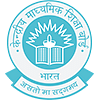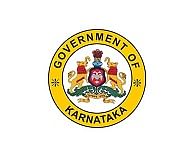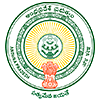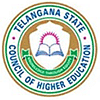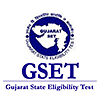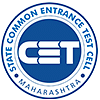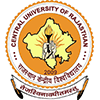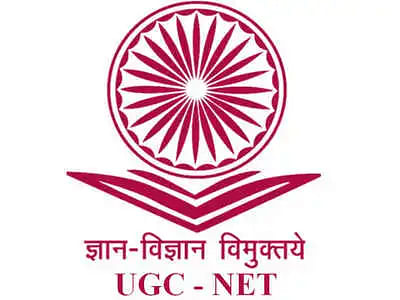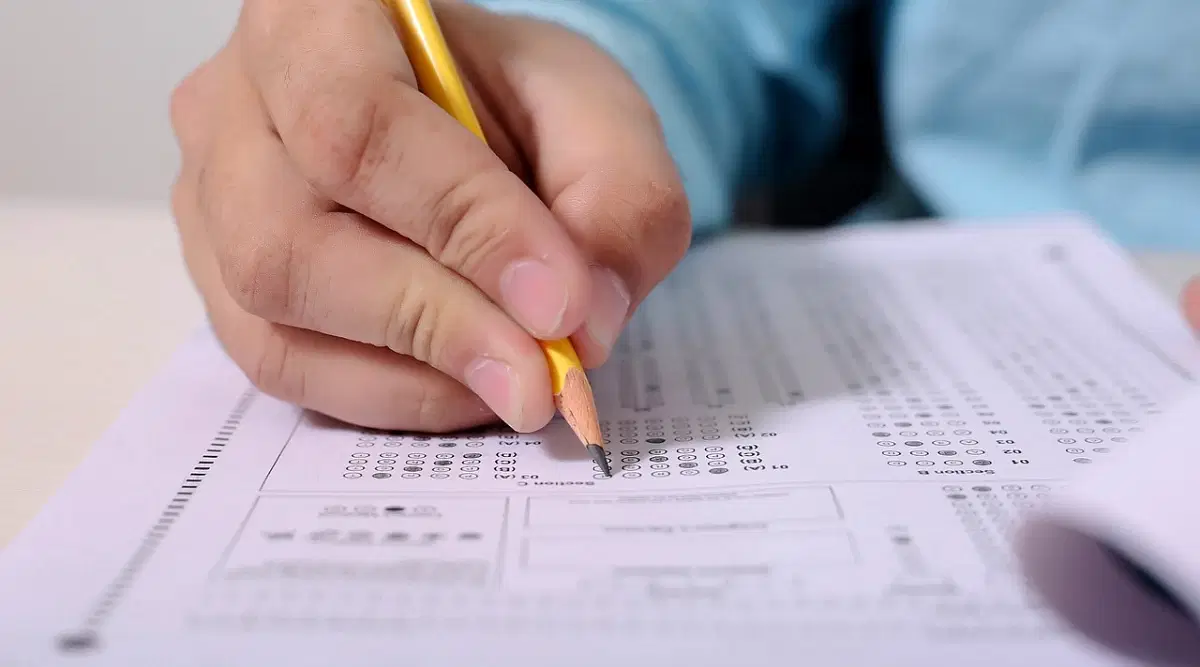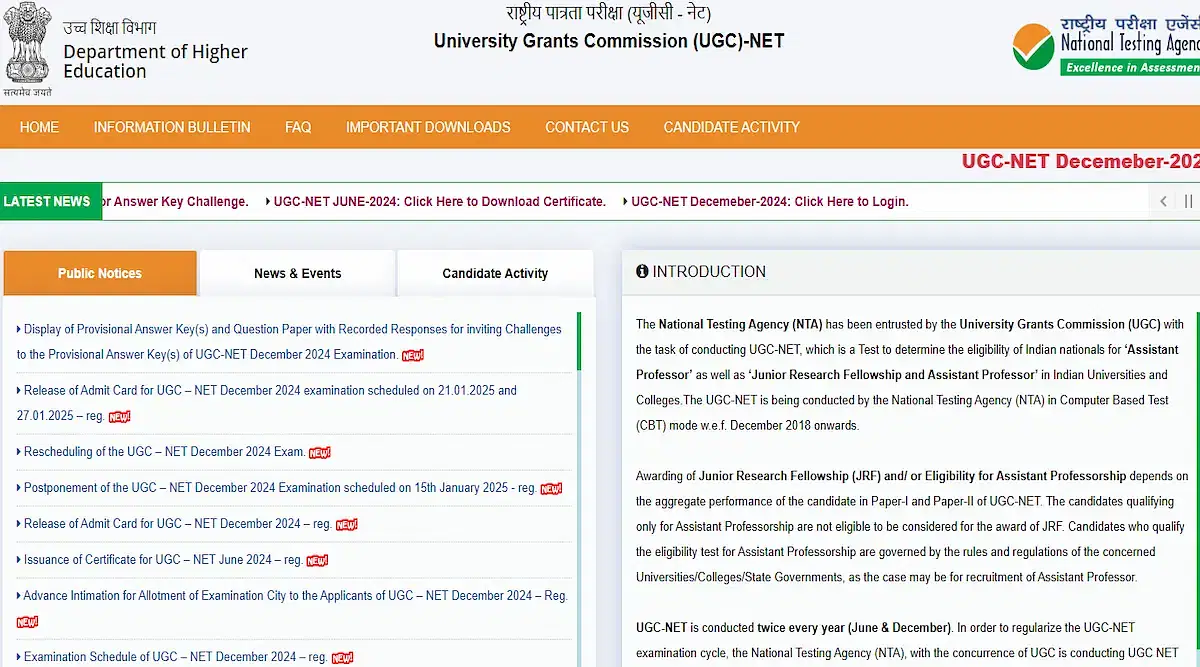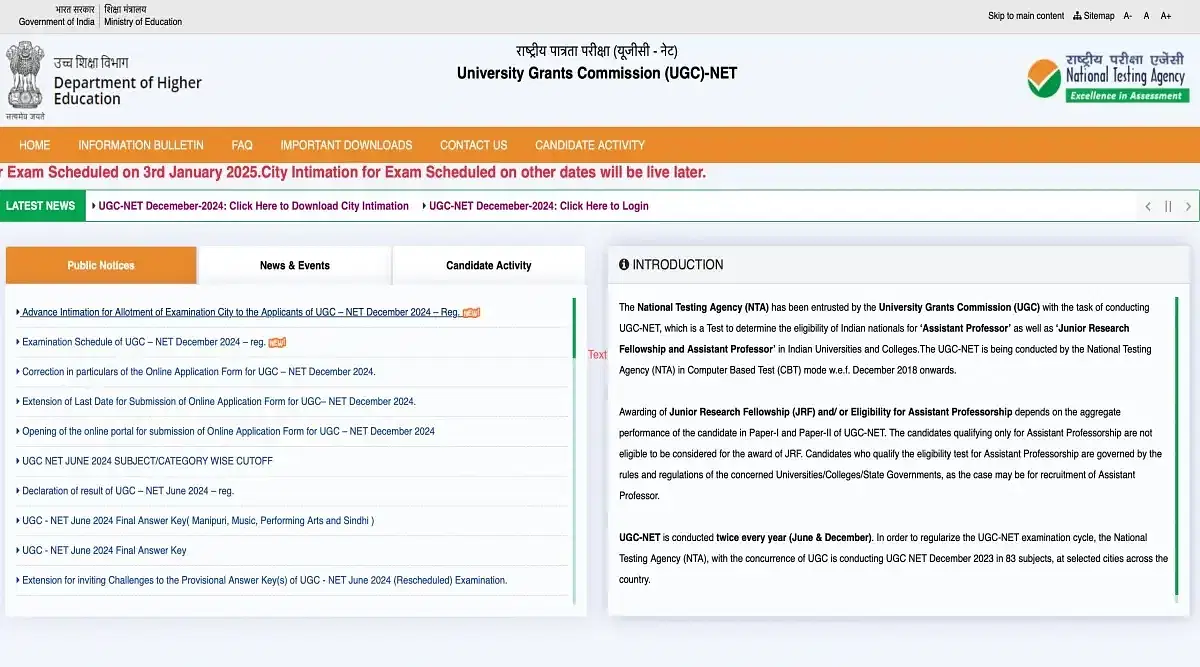
Table of Contents
UGC NET Economics syllabus 2024 deals with Business Economics, Micro and macro Economics, Demography, Cooperation, Development Economics, Development Planning, Development Studies, Econometrics, Rural Economics and more.
With 81 subject options to choose from in the UGC NET exam based on the degree and preferences, the subject code for Economics is 01. The test paper for economics is split into two papers- Paper-I and Paper-II, consisting of a total of 150 questions with Multiple Choice Questions (MCQs).
UGC NET Economics Syllabus 2024: PDF
UGC NET economics syllabus 2024 PDF download link has been provided in the table below. It will help students learn the syllabus and topic in detail.
| Particulars | Link |
| UGC NET Economics Syllabus PDF 2024 | Download PDF |
UGC NET Economics Syllabus Chapter-wise
Candidates appearing for the exam should check out the revised syllabus. Let us first understand the online exam pattern for the UGC NET Economics Syllabus 2024.
- Paper-I: Evaluate the candidate’s skills and eligibility for Teaching and Research Ability
- Paper-II: Questions will be based on the subjects opted for by the candidate
The following Units (I-X) represent the chapter and section-wise topics for the upcoming UGC NET Economics subject preparation.
Unit I: Micro Economics
The first unit leans on learning about consumer behaviour, production, and costs, the structures in the market, welfare economics with regard to single factors and consequences to behaviour by the individuals.
| Sl.No | Chapters | Topics |
|---|---|---|
| 1 | Theory of Consumer Behaviour | |
| 2 | Theory of Production and Costs | |
| 3 | Decision making under uncertainty Attitude towards Risk | |
| 4 | Game Theory | Non-Cooperative games |
| 5 | Market Structures, competitive and non-competitive equilibria, and their efficiency properties | |
| 6 | Factor Pricing | |
| 7 | General Equilibrium Analysis | |
| 8 | Efficiency Criteria | Pareto-Optimality, Kaldor – Hicks and Wealth Maximization |
| 9 | Welfare Economics | Fundamental Theorems, Social Welfare Function |
| 10 | Asymmetric Information | Adverse Selection and Moral Hazard |
Unit II: Macroeconomics
The unit section expands more on the studying of the economic parts with economical factors including interest rates, business cycles, monetary policies, and demand and supply of money, the national income.
| Sl.No | Chapters | Topics |
|---|---|---|
| 1 | National Income | Concepts and Measurement |
| 2 | Determination of output and employment | Classical & Keynesian Approach |
| 3 | Consumption Function | |
| 4 | Investment Function | |
| 5 | Multiplier and Accelerator | |
| 6 | Demand for Money | |
| 7 | Supply of Money | |
| 8 | IS-LM Model Approach | |
| 9 | Inflation and Phillips Curve Analysis | |
| 10 | Business Cycles | |
| 11 | Monetary and Fiscal Policy | |
| 12 | Rational Expectation Hypothesis and its critique |
Unit III: Statistics and Econometrics
Most of the topics in this unit portion pay more learning about the application of statistical methods, sampling methods, and distributions leading to collecting and analyzing the data, fetching descriptive statistics.
| Sl.No | Chapters | Topics |
|---|---|---|
| 1 | Probability Theory | Concepts of probability, Distributions, Moments, Central Limit theorem |
| 2 | Descriptive Statistics | Measures of Central tendency & dispersions, Correlation, Index Numbers |
| 3 | Sampling methods & Sampling Distribution | - |
| 4 | Statistical Inferences, Hypothesis testing | |
| 5 | Linear Regression Models and their properties | |
| 6 | Identification Problem | |
| 7 | Simultaneous Equation Models | recursive and non-recursive |
| 8 | Discrete choice models | - |
| 9 | Time Series Analysis |
Unit IV: Mathematical Economics
All the topics falling under Mathematical economics mainly aim at studying topics under the models of mathematics, that uses the principles and methods of economics, its differentiation, sets functions, series and sequences, representing economic theories and analyze problems in economics
| Sl.No | Chapters | Topics |
|---|---|---|
| 1 | Sets, functions and continuity, sequence, series | |
| 2 | Differential Calculus and its Applications | |
| 3 | Linear Algebra | Matrices, Vector Spaces |
| 4 | Static Optimization Problems and their applications | |
| 5 | Input | Output Model, Linear Programming |
| 6 | Difference and Differential equations with applications |
Unit V: International Economics
Studies of topics related to the effects upon economic activity from various routes of international differences like international trade, exchanging rate, tariff, and non-tariff barriers which are affected by consumer behaviour and productions.
| Sl.No | Chapters | Topics |
|---|---|---|
| 1 | International Trade | Basic concepts and analytical tools |
| 2 | Theories of International Trade | |
| 3 | International Trade under imperfect competition | |
| 4 | Balance of Payments | Composition, Equilibrium and Disequilibrium and Adjustment Mechanisms |
| 5 | Exchange Rate | Concepts and Theories |
| 6 | Foreign Exchange Market and Arbitrage | |
| 7 | Gains from Trade, Terms of Trade, Trade Multiplier | |
| 8 | Tariff and Non-Tariff Barriers to trade; Dumping | |
| 9 | GATT, WTO and Regional Trade Blocks; Trade Policy Issues | |
| 10 | IMF & World Bank |
Unit VI: Public Economics
Most of the topics under this section relate to government policies, measures on market regulation, market failure with the help of economic efficiency including public expenses, budget, revenue, debt, and public management.
| Sl.No | Chapters | Topics |
|---|---|---|
| 1 | Market Failure and Remedial Measures | Asymmetric Information, Public Goods, Externality |
| 2 | Regulation of Market | Collusion and Consumers’ Welfare |
| 3 | Public Revenue | Tax & Non-Tax Revenue, Direct & Indirect Taxes, Progressive and non-Progressive Taxation, Incidence and Effects of Taxation |
| 4 | Public expenditure | |
| 5 | Public Debt and its management | |
| 6 | Public Budget and Budget Multiplier | |
| 7 | Fiscal Policy and its implications |
Unit VII: Money and Banking
Understanding the concepts of the medium of exchange in an economy to develop a transactional exchange of goods and services, through various mode of services offered by banking, working of monetary policies, and more,
| Sl.No | Chapters |
|---|---|
| 1 | Components of Money Supply |
| 2 | Central Bank |
| 3 | Commercial Banking |
| 4 | Instruments and Working of Monetary Policy |
| 5 | Non-banking Financial Institutions |
| 6 | Capital Market and it's Regulation |
Unit VIII: Growth and Development Economics
Studies on the topics related to national income and national output with developing the quality of living standards and life dragging economic growth and development, the technical progress, poverty, and inequalities.
| Sl.No | Chapters | Topics |
|---|---|---|
| 1 | Economic Growth and Economic Development | |
| 2 | Theories of Economic Development | Adam Smith, Ricardo, Marx, Schumpeter, Rostow, Balanced & Unbalanced growth, Big Push approach |
| 3 | Models of Economic Growth | Harrod-Domar, Solow, Robinson, Kaldor |
| 4 | Technical progress | Disembodied & embodied; endogenous growth |
| 5 | Indicators of Economic Development | PQLI, HDI, SDGs |
| 6 | Poverty and Inequalities | Concepts and Measurement |
| 7 | Social Sector Development | Health, Education, Gender |
Unit IX: Environmental Economics and Demography
Studies concerned with the environmental issues, economic-environment relationship with the size, distribution, composition with the valuation of environmental goods as well.
| Sl.No | Chapters | Topics |
|---|---|---|
| 1 | Environment as a Public Good | |
| 2 | Market Failure | |
| 3 | Coase Theorem | |
| 4 | Cost-Benefit Analysis and Compensation Criteria | |
| 5 | Valuation of Environmental Goods | |
| 6 | Theories of Population | |
| 7 | Concepts and Measures | Fertility, Morbidity, Mortality |
| 8 | Age Structure, Demographic Dividend | |
| 9 | Life Table | |
| 10 | Migration |
Unit X: Indian Economy
The last unit of the syllabus focuses on dealing with topics regarding the developing economy like low per capita income, infrastructure, the growth of developmental structure and pattern, and reforms in land, labor, and capital markets.
| Sl.No | Chapters | Topics |
|---|---|---|
| 1 | Economic Growth in India | Pattern and Structure |
| 2 | Agriculture | Pattern & Structure of Growth, Major Challenges, Policy Responses |
| 3 | Industry | Pattern & Structure of Growth, Major Challenges, Policy Responses |
| 4 | Services | Pattern & Structure of Growth, Major Challenges, Policy Responses |
| 5 | Rural Development | Issues, Challenges & Policy Responses |
| 6 | Urban Development | Issues, Challenges and Policy Responses |
| 7 | Foreign Trade | Structure and Direction, BOP, Flow of Foreign Capital, Trade Policies |
| 8 | Infrastructure Development | Physical and Social; Public-Private Partnerships |
| 9 | Reforms in Land, Labour and Capital Markets | |
| 10 | Centre-State Financial Relations and Finance Commissions of India; FRBM | |
| 11 | Poverty, Inequality & Unemployment |
Downloadable Resources for UGC NETs
- UGC NET
- REET
- AP TET
- UTET
- CTET
- UP B.Ed JEE
- AP EDCET
- TS EDCET
- AP DEECET
- KSET
- MH SET
- Kerala SET
- RIE CEE
- MAH BEd CET
- GSET
Get all Answer Key with UGC NETs in One Click
UGC NET Economics Exam Pattern 2024
To understand the syllabus better, here is the exam pattern for UGC NET. Candidates must note that the test will continue with no break/short recess from Paper-I to Paper-II unless emergencies/technical glitches arise.
| Highlights | UGC NET Paper-I | UGC NET Paper-II |
| Test Mode | Online | |
| Duration of test | 3 hours (180 minutes) | |
| Paper Type | Common | Subject Specific/Preference-based questions |
| Questions Type | Multiple Choice Questions (MCQ)s | |
| No of Questions | 50 | 100 |
| Mark in Total | 100 | 200 |
| Marking Scheme | No negative Marking, 2 marks per correct response | |
| Language medium | English & Hindi | |
Best books for UGC NET Economics Syllabus 2024
The best secret one can elevate towards obtaining a flying score in the UGC NET exam is sticking up to the right lists of books. Keep it selective and those textbooks simpler to understand. For more details, refer to the official NTA website of the exam. On the other hand, read out the best reference books for the UGC NET economics syllabus on the above-mentioned topics.
- UGC NET/SET (JRF & LS): Sundar Gopal Mishra (Arihant books)
- UGC NET Economics Paper-II: Dr. Sanjay Kumar
- NTA UGC NET Economics: Trueman’s
- Macro Economics Analysis (5th edition): Edward Shapiro
- Programmed Statistics: B.L. Agarwal
- Micro Economics (2nd edition): Anna Koutsoyiannis
- Indian Economy: V.K.Puri & S.K. Mishra
- Public Finance in Theory and Practice: S.K. Singh
- UGC NET Economics Paper-II: Rakesh Kumar Roashan, Ritu Batra
- International Trade: Bo Sodersten & Geoffrey Reed
Read More: Best books for UGC NET Economics Syllabus











